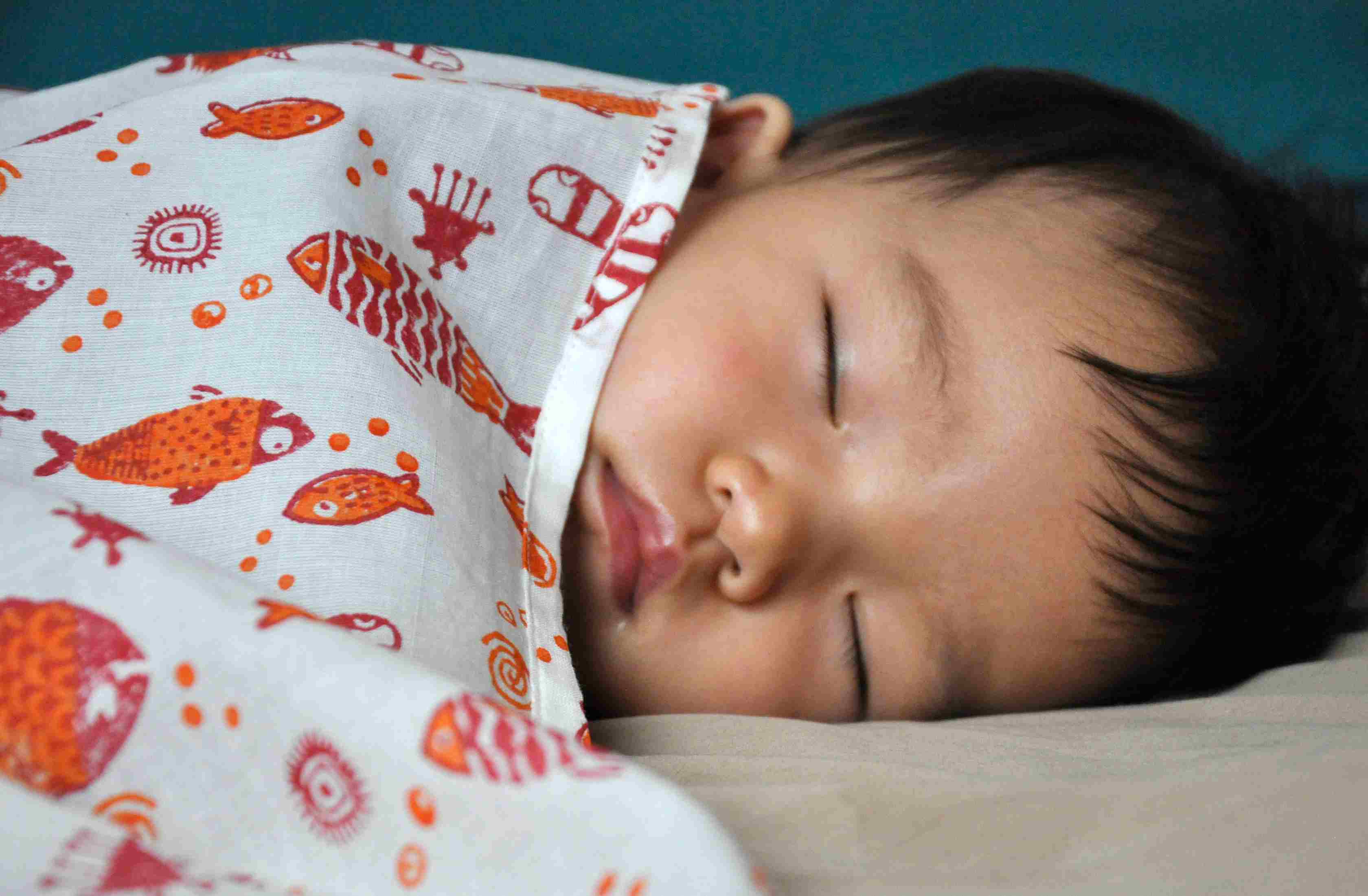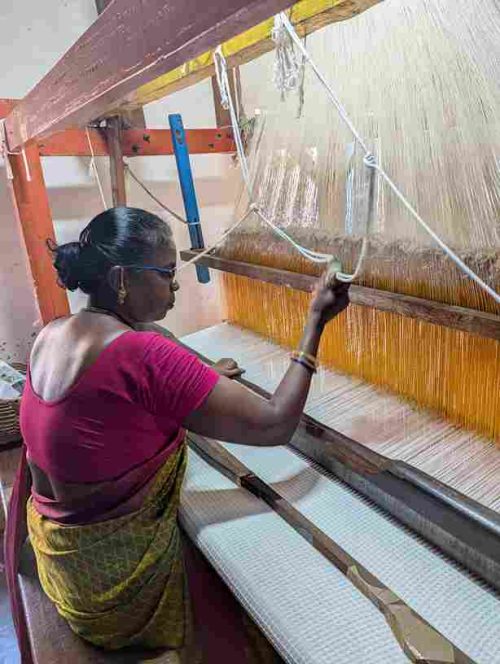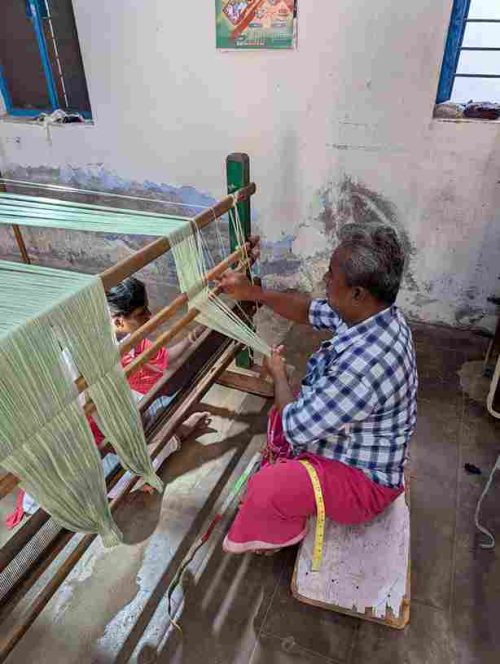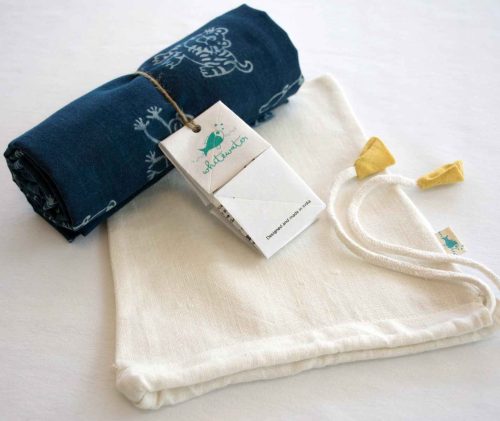2 Sisters Turned Their Lived Experience Into a Sustainable Babywear Brand Rooted in Tradition & Care
Born with visible disabilities that once invited stares, questions, and unsolicited advice, sisters Shweta and Ankita Dhariwal chose to turn their lived experiences into a quiet revolution. Today, they run Whitewater Kids — a sustainable, zero-waste brand making organic cotton babywear and toys that prioritise skin sensitivity, storytelling, and artisan livelihoods.
Founded in 2017, Whitewater Kids blends poetry, purpose, and traditional Indian crafts to create soft, skin-friendly clothes and toys for children. The sisters’ journey is not just one of building a brand — but reclaiming identity, dignity, and joy.
Where poetry meets fabric
The idea for Whitewater Kids began simmering in the sweltering summer of 2007, in Ahmedabad. Shweta, then a textile designer with experience in research and corporates, was searching for breathable clothing for her children — something soft, slow, and rooted in nature.
 The name Whitewater Kids reflects their core values: White for purity, Water for life, transparency, and flow. The logo — a gentle fish in a nurturing sea — captures the safe, inclusive world they want to create.
The name Whitewater Kids reflects their core values: White for purity, Water for life, transparency, and flow. The logo — a gentle fish in a nurturing sea — captures the safe, inclusive world they want to create.
“Organic cotton was the answer to all my worries,” says Shweta. Over the next decade, she explored exhibitions, connected with artisans, and refined her vision — finally launching Whitewater Kids in 2017 with her sister Ankita as co-founder.
The name Whitewater Kids reflects their core values: White for purity, Water for life, transparency, and flow. The logo — a gentle fish in a nurturing sea — captures the safe, inclusive world they want to create.
Ankita, who brings her storytelling and design background from the London College of Communication, has helped build a strong digital presence for the brand.
Shweta didn’t just want to design clothes — she wanted them to tell stories. A passionate writer, she began weaving her original poems into the very fabric of the garments.
“The artisans I work with bring my verses to life,” she says, smiling.
Whether it’s a swaddle inspired by a little fish dreaming of flight or a lullaby about the mother-child bond, every piece carries a thread of empathy and imagination.
Here’s one such poem, printed on fabric:
Little Koi wants to fly
Sleep little fishes, close your eyes, –
Mummy’s going to take you to the Land of Kites!
They float like the clouds,
they sail with the winds.
They colour the sky
bright, red, yellow, blue and green.
“What a wonderful feeling!”
Little Koi shouted to his friends.
“I want to fly in the sky too –
Like the clouds,
Like the kites,
Like the wind.”
Hush little fishes, close your eyes,
The sun has gone to bed
and so must I.
Crafted by many hands for the Indian child
From Kantha artists in Bengal and Ajrakh masters in Kutch to weavers in South India, Whitewater Kids collaborates with traditional artisans across India. The team co-creates child-friendly fabrics while preserving crafts and generating fair livelihoods.
“We knew we were on the right path when we partnered with skilled local artisans — especially women — to preserve traditional crafts and provide fair livelihoods,” Shweta shares, adding, “We honour their pace and rhythm. Their dignity matters to us.”
 “Artisans are encouraged to play and experiment. That’s where beauty lies,” Ankita says.
“Artisans are encouraged to play and experiment. That’s where beauty lies,” Ankita says.
One such artisan is Aslima, a Kantha craftswoman who leads a collective of 200 women in Bengal — many of whom work from home, balancing tradition and motherhood.
“Design at Whitewater is intentionally minimalist,” says Ankita. Rooted in traditional block prints and natural dyes like indigo, their products embrace imperfection and individuality.
A Gujarati word — ‘Gemthem’, meaning randomness — defines their creative approach. “Artisans are encouraged to play and experiment. That’s where beauty lies,” she adds.
Every product, from a kurta set to a pillow, is made using natural fibres, herbal dyes, and a zero-plastic approach — ideal for the Indian climate and a child’s delicate skin.
Overcoming disability, redefining identity
Both sisters live with disabilities — Shweta has Vitiligo, and Ankita a walking disability. But instead of hiding, they chose to lead. “Our disabilities shaped the philosophy of our company. We know what it means to be excluded — so we build with empathy,” says Shweta.
She recalls being asked by her son’s friend, “What’s wrong with aunty’s face?”
“Instead of getting upset, I sat down with that child and explained. That’s what inclusion means.”
This deep understanding of sensitivity is woven into every aspect of their product — especially fabric quality and skin-friendliness.
More Than a business: A slow revolution
Today, Whitewater Kids customers are across India, the Middle East, Singapore, California, and Italy.
Their products range from jhablas and kurta sets to pillows and towels, priced between ₹1,800 and ₹2,300.
But for the sisters, success isn’t just numbers.
 “This isn’t just a business — it’s a movement,” says Shweta. “Where design meets dignity, poetry meets purpose, and work becomes a way to uplift.”
“This isn’t just a business — it’s a movement,” says Shweta. “Where design meets dignity, poetry meets purpose, and work becomes a way to uplift.”
“This isn’t just a business — it’s a movement,” says Shweta. “Where design meets dignity, poetry meets purpose, and work becomes a way to uplift.”
Their customers agree. Parul Chaitlangia, a Mumbai-based mom of two, shares: “I’ve never used another brand in seven years. Their quality, skin-friendliness, and stories keep bringing me back.”
What’s next for Whitewater Kids?
As they gear up to expand operations, the sisters remain committed to their original promise — to build a caring ecosystem for children, artisans, and the planet.
 Rooted in traditional block prints and natural dyes like indigo, their products embrace imperfection and individuality.
Rooted in traditional block prints and natural dyes like indigo, their products embrace imperfection and individuality.
“Our skin doesn’t define us — our work does,” says Ankita. “And with Whitewater Kids, we’ve created a space where others can believe that too.”
To explore their work, visit their website.
News